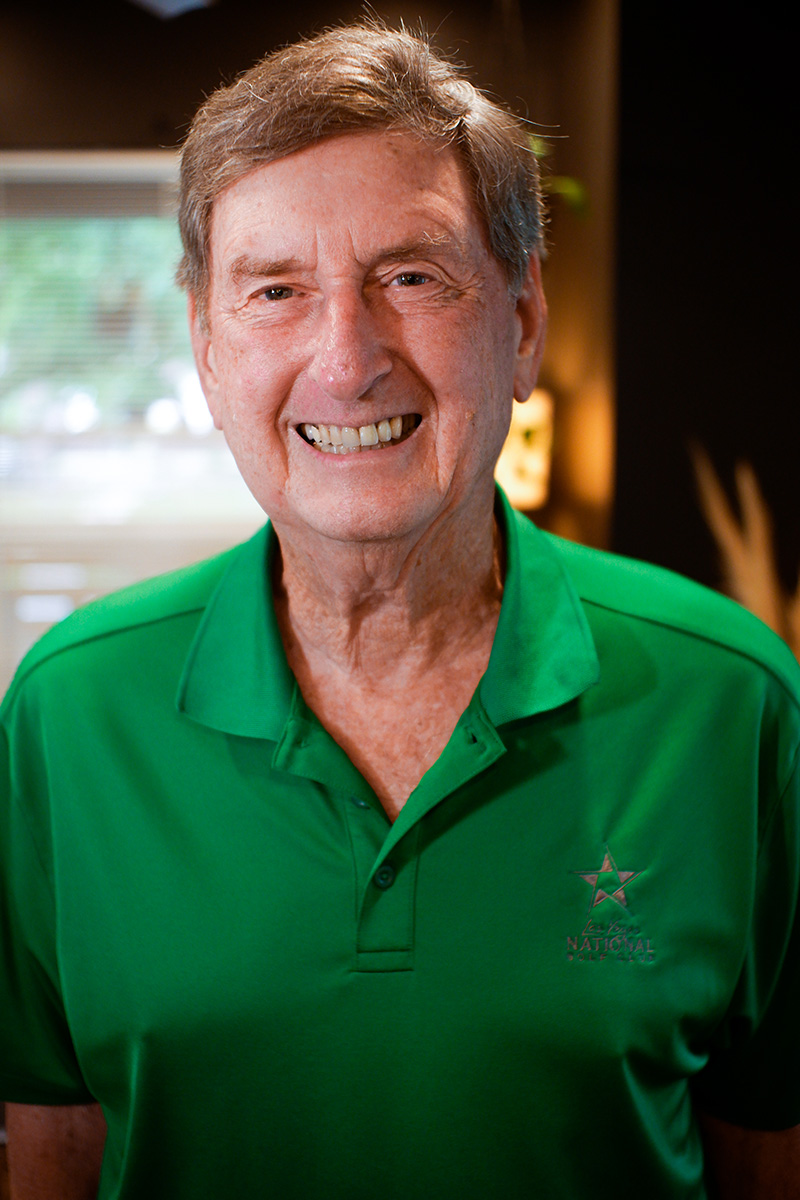2022 Citizen Scientist Champion Award Elevated Honoree, Bob Deady, was featured in the KU ADRC publication for his dedication to Alzheimer’s research.
There’s a familiar face around the University of Kansas Alzheimer’s Disease Research Center (KU ARDC). He doesn’t have an office, or a nameplate on the door or letters behind his name. But he’s doing his part for Alzheimer’s disease research and the study of other types of dementia.
Meet Robert Deady, Citizen Scientist. Call him Bob.
Since 2011, Bob Deady (pronounced Day-dee) has been an active volunteer and participant for the many clinical trials and events at the KU ARDC. Just how many clinical trials? “I wouldn’t even hazard a guess,” Deady said. “I don’t know, 15? 20? It’s been a lot.”
The 79-year-old retired salesperson from Lenexa said he felt compelled to sign up for clinical trials not for himself but for his three grown children and seven grandchildren.
“I’ve always said, I don’t think I’m going to improve Alzheimer’s science for my generation. It’s for my kids and my grandkids. That’s part of my motivation to do it, to help the next generation,” he said.
Participating in prevention studies
“Bob’s been a key participant in several of our prevention studies,” said Jeffrey Burns, M.D., co-director of the KU ADRC. These prevention studies need people who have not been diagnosed with dementia to give researchers insights on how their interventions — things like exercise, social activity and brain games — affect a “normal” but aging brain.
Deady keeps active playing golf and pickleball, and he’s not been diagnosed with any type of dementia. His parents showed only mild cognitive decline as they reached their 80s. He’s hoping researchers can extend that dreaded decline with every generation.
“I think researchers are going to make gradual improvements (in treating dementia),” Deady said. “It’s like, ‘Is there a cure for cancer? No, but the researchers have helped improve treatment.’ I think Alzheimer’s disease will be the same way if they can keep improving the science.”
Deady recalled one study where he exercised with a personal trainer to get his heart rate incrementally up to 120 beats a minute for 25 minutes a day. In another, he answered questions on a computer. For a third, he received a full-body scan.
Recognizing his efforts
Rachel Sandoval is program manager for Lifestyle Empowerment for Alzheimer’s Prevention (LEAP!), which provides practical strategies to boost brain health and reduce the risk of Alzheimer’s disease. She said Deady is always willing to sign up wherever he’s needed.
“Not only has he participated in multiple clinical trials, he regularly shares his passion for Alzheimer’s research with friends, family and his community,” Sandoval said. “He definitely has gone above and beyond.”

but also recruits fellow golfers to volunteer for
KU ADRC clinical trials.
Photo courtesy of Robert Deady.
She estimates that Deady has supported at least 75 events, initiatives or clinical trials at KU ARDC. He’s been such a fixture at the center that Sandoval nominated him for the Citizen Scientist Award presented by the Global Alzheimer’s Platform Foundation (GAP).
Deady won the prestigious national award and accepted the trophy at the annual GAP conference in February 2023. The award is also called the Champion Award, because the winner champions the cause with extraordinary effort.
“We always need more volunteers for research, but to have somebody so passionate about dementia research that they get their friends involved, and they spread the word however they can, that’s way more powerful than just participating yourself,” Sandoval said. “But Bob Deady does both.”
Attracting volunteers
Burns said getting volunteers for clinical trials is crucial. “The No. 1 thing that slows us down (in research) is recruiting research participants to be a part of these studies,” he said.
Deady estimates that at least 25 people have volunteered at a KU ADRC event or enrolled in a KU ARDC clinical trial because he referred them. Whether he’s on the pickleball court or talking a walk around his neighborhood, he’ll bring up the KU ADRC.
“I just effuse the way I feel about it,” Deady said. “And then people start asking questions, and they end up saying, ‘That sounds kind of neat.’”
Burns said Deady is always giving, helping his community and moving things forward. “We need people like Bob spreading the word and being a part of our programs.”
Originally posted by KU ADRC on April 18, 2023.
